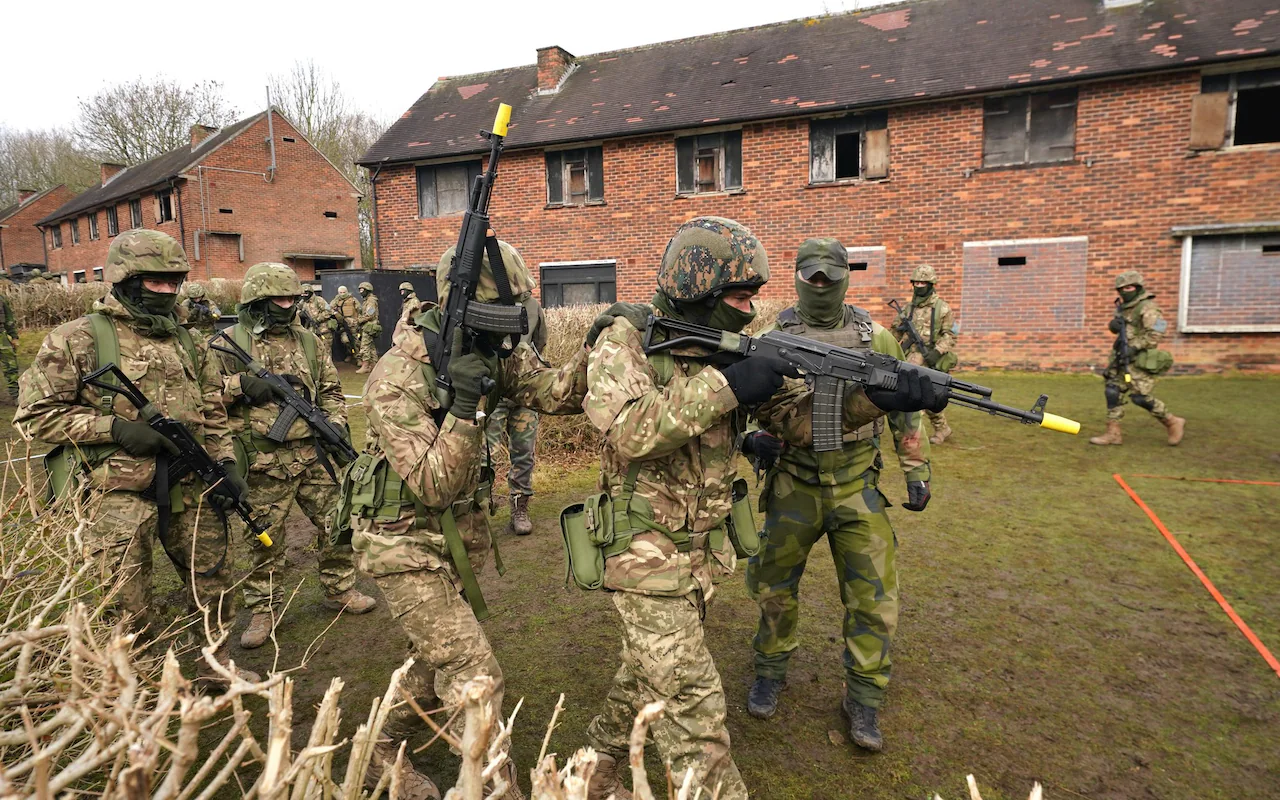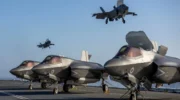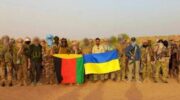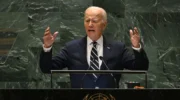MoD says support for Kyiv has ‘constrained’ Army’s capacity to drill its own troops.
Britain’s warfighting ability has been damaged by training Ukrainian soldiers, a report by the National Audit Office (NAO) has found.
The MoD said the UK’s military support for Ukraine had “constrained” its ability to train British troops, as it reduced the availability of training facilities on the Army’s estate.
The report, published on Wednesday, said: “The MoD has acknowledged that Interflex will constrain the British Army’s capacity to train its own soldiers.”
The report found that Army units had bids for time in training areas rejected eight times more often in 2023 than they were in 2019.
This was because a quarter of the Army’s training estate was being used for Operation Interflex, the UK’s basic infantry training programme.
More than 45,000 Ukrainian recruits have taken part in the scheme.
Last week, John Healey, the Defence Secretary, announced Operation Interflex would continue throughout 2025.
Operation Interforge, another training programme for Ukrainian marines, had to be moved to the Netherlands earlier this year because “the use of training facilities in the UK was threatening to compromise the Royal Marines’ own training needs”, the report said.
Since just before the outbreak of the war £171.5 million of equipment from the UK’s own stockpiles has been donated to Ukraine, on top of spending £2.4 billion procuring new equipment for Kyiv.
The cost of replenishing British stockpiles is set to outweigh the value of the donated equipment, although the MoD said the discrepancy was because of the UK buying newer equipment, which in some cases is more advanced than the kit donated to Ukraine.
It comes after General Sir Patrick Sanders, the former head of the Army, warned the UK’s donation to Ukraine of 14 Challenger 2 tanks made it “temporarily weaker” as the donation had left a “gap in our armoury”.
Other equipment supplied to Ukraine includes missiles, drones, artillery and small-arms ammunition, three Sea King helicopters, communications equipment and personal equipment such as body armour and helmets.
Sir Patrick also recently said war with Russia was inevitable unless the UK stockpiles lethal weapons. He said that if the UK fails to regrow its “very, very empty stockpiles” in light of all it has gifted to Ukraine it will be at war in five years.
He issued the calls as General Sir Roland Walker, the new head of the Army, warned that the UK needed to be able to fight a major war within three years because Russia will seek revenge on the West for aiding Ukraine.
Since the International Fund for Ukraine was established in 2022, the UK has been the largest donor and has committed £7.8 billion in support for Ukraine up to March 2025.
This includes both supplying military equipment and training Ukrainian soldiers, funded from the Treasury’s reserves.
In 2022-23 the MoD spent £2.9 billion on operations, its highest level of operational spending since 2011-12, when UK deployment in Afghanistan was near its peak.
It is understood that the MoD is “committed” to replacing the equipment and munitions that it has donated to Ukraine and are working closely with industry to upscale capacity in order to replenish losses.
More than 42,000 Ukrainians have received training in the UK since Russia’s full-scale invasion began in February 2022, with 89 per cent of the most recent cohort telling the Ministry of Defence (MoD) it left them better prepared for the battlefield.
Gareth Davies, the head of the NAO, said: “As the Ministry of Defence plans its future support for Ukraine, it must continue to balance the UK’s strategic interests with maintaining the UK’s own military capabilities.
“This includes making sure there are appropriate stocks of equipment and sufficient training provision for UK forces.”
A Ministry of Defence spokesman said: “All UK forces have access to the relevant training required to be held at readiness to protect the UK and meet our Nato commitments.
“But we welcome the NAO’s report, which recognises that Ukrainian troops are better prepared to defend their country from Russia’s illegal invasion thanks to the UK providing training.”









